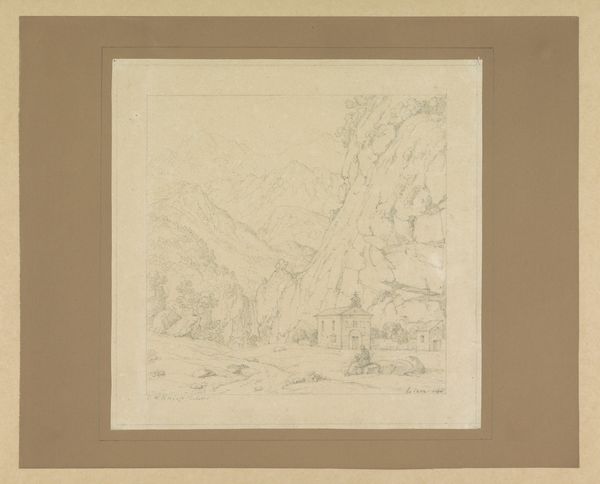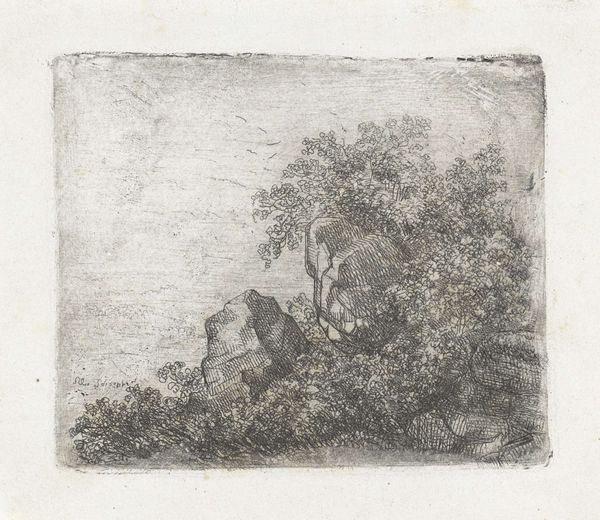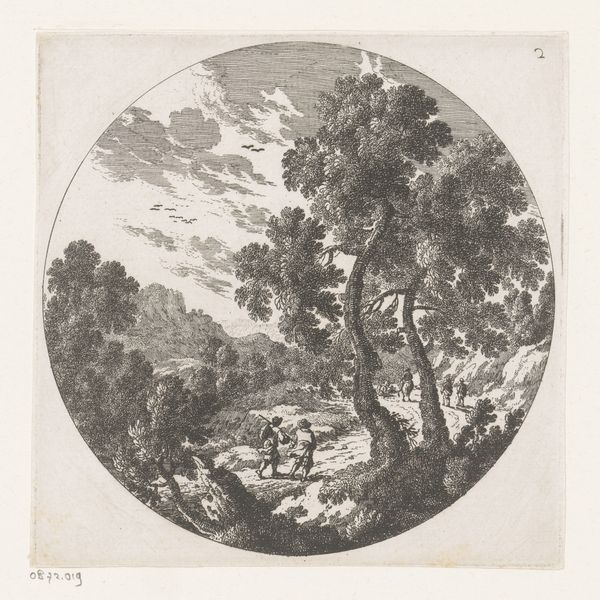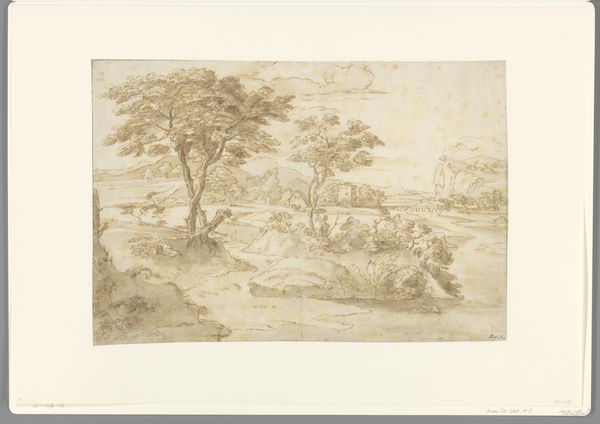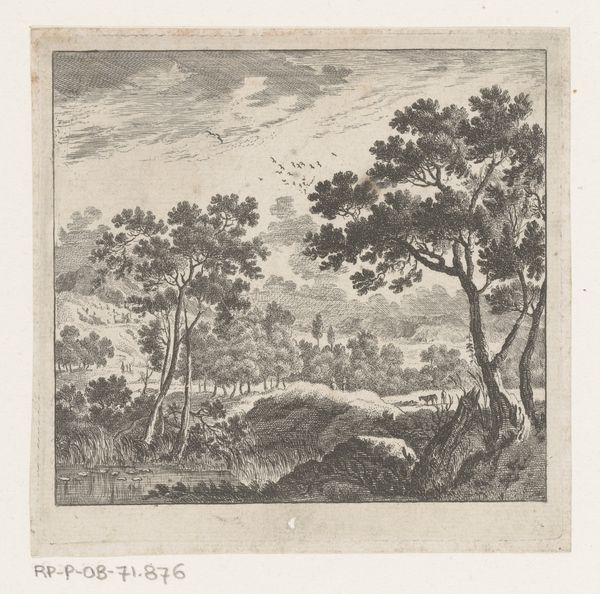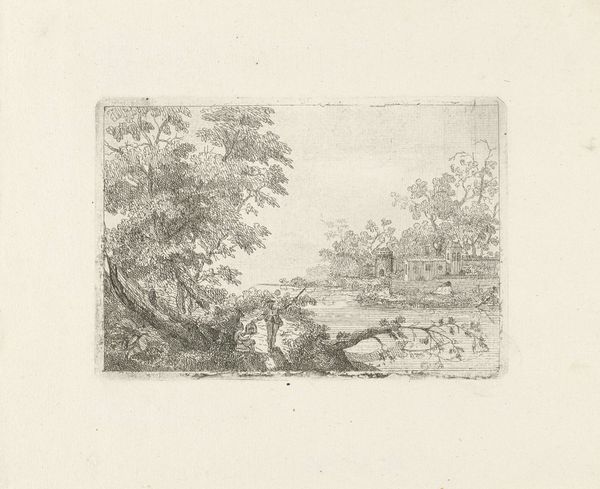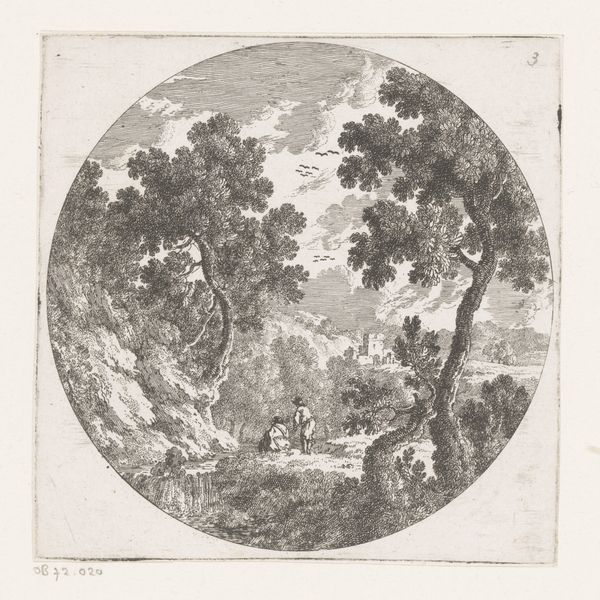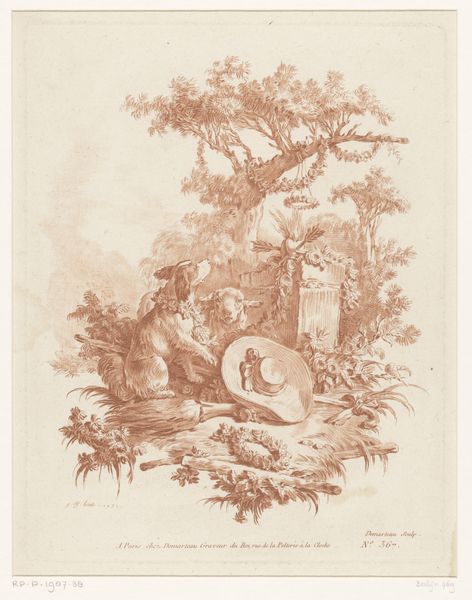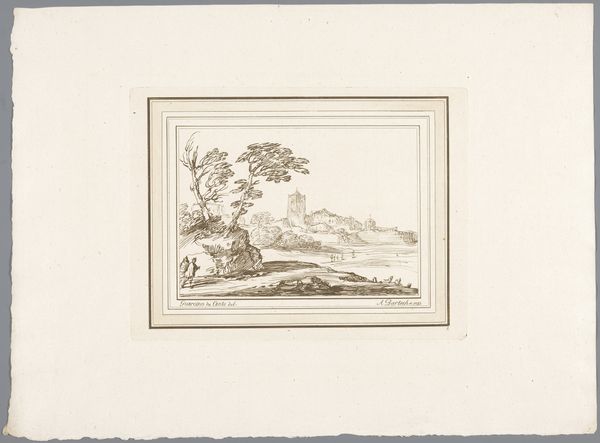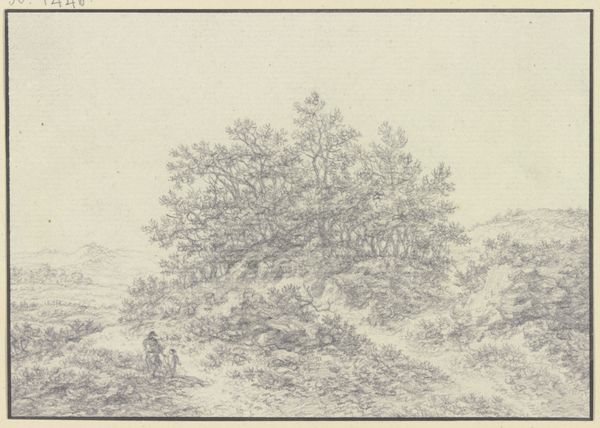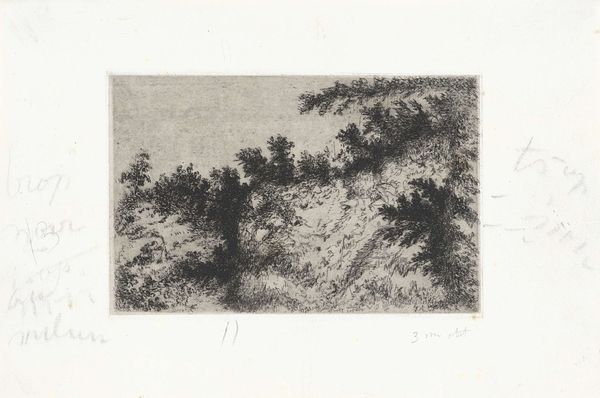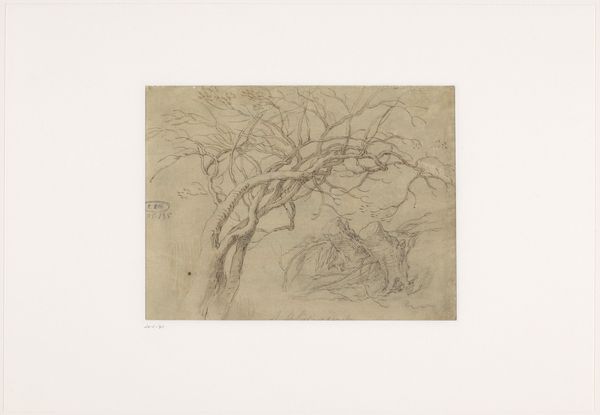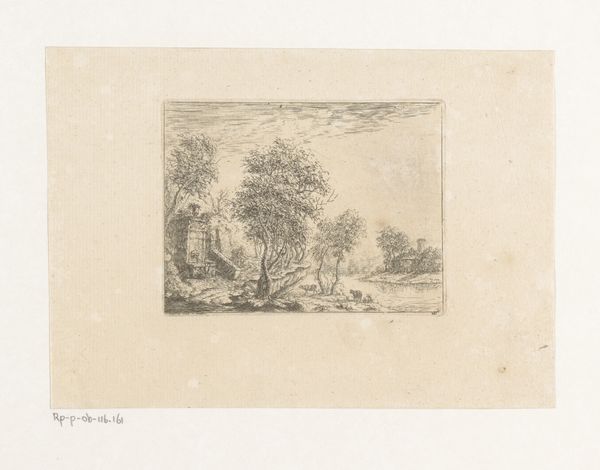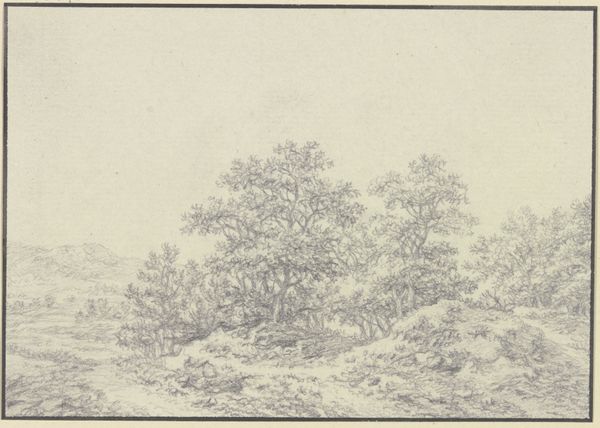
Dimensions: height 92 mm, width 95 mm
Copyright: Rijks Museum: Open Domain
Carl Friedrich Holtzmann created this small landscape scene using etching, a printmaking technique, sometime before his death in 1811. The image is built from a dense mesh of fine lines, each bitten into the surface of a metal plate by acid. Look closely, and you can see how the varying depth and density of these lines creates tone and texture. This was a labor-intensive process, demanding skill and patience to achieve such delicate detail. In Holtzmann's time, etching was widely used for book illustrations and reproductions, making art more accessible to a broader public. But it was also an artistic medium in its own right, prized for its unique visual qualities. The final print, like all works on paper, is fragile, portable, and collectible. By understanding the material and the making, we recognize this print not just as a pretty scene, but as a product of its time, embedded in a network of social and economic relations.
Comments
No comments
Be the first to comment and join the conversation on the ultimate creative platform.
